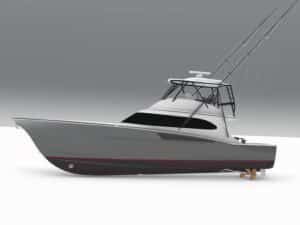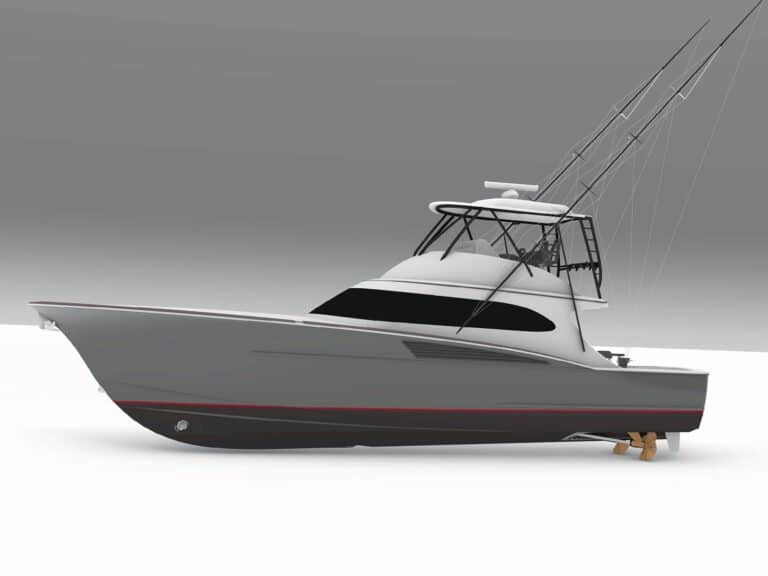
Hull and engine surveys are an essential part of every vessel transaction, and the complexity of surveys generally increases with the size of the vessel. We have recently seen a string of transactions resulting in disputes related to mishandled survey deficiencies. A survey deficiency could be anything from a non-functioning bilge pump to evidence of rot to a simple lack of certain safety gear. Disputes often arise from the timing and quality of work done to correct such deficiencies, or from the value agreed upon to cover repairs. There are certain things parties can do to avoid such a scenario.
Surveys are Rarely Perfect
One thing all boaters should know is that a perfect hull survey essentially never happens. I have personally never seen a flawless survey, even on a new vessel, so buyers should recognize that as they go into the process and not panic when they first read through a report. With that being said, there are certainly items on a vessel that are more valuable and more important than others.
Depending on the severity of the issues discovered by a surveyor, a buyer can accept the boat as is, reject it outright, or conditionally accept it based on certain terms, such as a price reduction or repairs to be completed prior to the closing date. As discussed in a previous column, a conditional acceptance is arguably the most important document in a transaction because it covers the terms upon which the buyer is willing to close.
Subjective terms in the document itself, or the failure to thoroughly review the cost and timing of repairs, is often the source of a dispute.
Thoroughly Investigate
I was recently hired to assist in a dispute where an expensive piece of equipment aboard a vessel was discovered to be faulty during the survey. The parties agreed to close prior to completion of the repairs and hold back a portion of the purchase price until the equipment was fixed. Multiple contractors unsuccessfully attempted to fix the item before the equipment manufacturer eventually came aboard the vessel more than a year later and determined the only option was replacement. It turns out the cost was about double the amount of the holdback and the seller refused to provide any additional funds to cover the replacement. The parties wound up in a standoff over the situation, which eventually led to costly litigation. The parties in this scenario did not necessarily make a mistake, but there are ways to reduce the chances of a dispute.
Dates are Important
To begin with, the dates in a purchase and sale agreement should be practical. For example, an accept/reject date should probably not be two days after the effective date of the purchase agreement. The buyer needs the time to hire a surveyor, haul out the vessel, perform sea trials and receive an oil sample analysis, which typically takes at least a week—and often longer—to organize. Buyers should carefully consider whether they want survey deficiencies repaired before closing, a price reduction or even an escrow holdback in certain situations.
A price reduction is cleaner and typically allows for a faster closing, but along with an escrow holdback, you take the risk of the repairs being more costly than anticipated. On the other hand, having the repairs done before delivery is also nice, but the buyer typically loses a bit of control over how the work is performed.
Nonetheless, sellers should be fair to buyers attempting to extend the accept/reject date if necessary, especially if matters have been handled professionally and swiftly up to that point. A buyer deserves the opportunity to thoroughly inspect the boat and investigate the cost of repairs or replacement of certain items. Stubborn or unwilling sellers are not only difficult to deal with, but such behavior might also be a red flag to buyers, pushing them in a different direction.
Learn more about **purchasing a boat using conditional acceptance.
Similarly, the window between the accept/reject date and closing date should also provide ample time for all parties to complete the necessary steps prior to delivery.
I understand how difficult it is to wait a few extra days to get a new boat, but in my experience, it is important to stay patient and get the right results without letting anyone involved put pressure on you. I certainly do not condone intentionally delaying a transaction, but it does neither party any good to rush.
Buyers and sellers should always consider the dates in a purchase agreement prior to execution. Impractical dates usually put unneeded pressure and unrealistic expectations on the parties, which can lead to oversights—or simply a deal that falls through.
Raleigh P. Watson is a contributing author, and a Partner at Miller Watson Maritime Attorneys.







